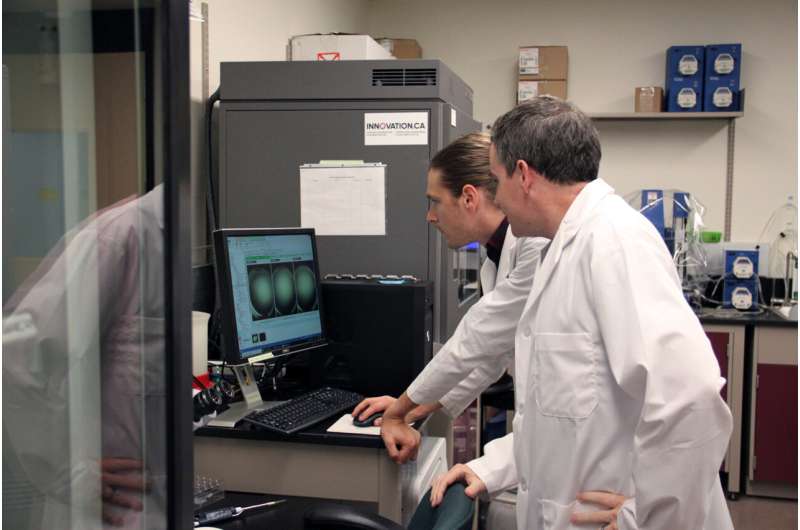Researchers discover toxin that kills bacteria in unprecedented ways

Researchers at McMaster University have discovered a previously unknown bacteria-killing toxin that could pave the way for a new generation of antibiotics.
The study, led by John Whitney at the Michael G. DeGroote Institute for Infectious Disease Research, shows that the bacterial pathogen Pseudomonas aeruginosa, known to cause hospital-acquired infections such as pneumonia, secretes a toxin that has evolved to kill other species of bacteria.
For Whitney, the key aspect of his discovery is not just that this toxin kills bacteria, but how it does so.
"This research is significant, because it shows that the toxin targets essential RNA molecules of other bacteria, effectively rendering them non-functional," said Whitney, associate professor for the Department of Biochemistry and Biomedical Sciences.
"Like humans, bacteria require properly functioning RNA in order to live."
"It's a total assault on the cell because of how many essential pathways depend on functional RNAs," said first study author Nathan Bullen, a graduate student in McMaster's Department of Biochemistry and Biomedical Sciences.
"This toxin enters its target, hijacks an essential molecule needed for life, and then uses that molecule to disrupt normal processes."
Whitney and Bullen, together with colleagues at Imperial College London and the University of Manitoba, have studied this toxin for nearly three years to understand exactly how it functions at a molecular level.
The breakthrough, published in Molecular Cell, was achieved by Bullen following rigorous experimentation on common targets of toxins, such as protein and DNA molecules, before eventually testing the toxin against RNA.
This discovery breaks well-established precedents set by protein-targeting toxins secreted by other bacteria, such as those that cause cholera and diphtheria.
Researchers say that this development holds great potential for future research that could eventually lead to new innovations that combat infection-causing bacteria.
Whitney says the newly-discovered vulnerability can be exploited for future antibiotic development.
More information: Nathan P. Bullen et al, An ADP-ribosyltransferase toxin kills bacterial cells by modifying structured non-coding RNAs, Molecular Cell (2022). DOI: 10.1016/j.molcel.2022.08.015
Journal information: Molecular Cell
Provided by McMaster University





















